Educational Programs at the Museum
Add one of our engaging museum experiences to your field trip!
Book TodayMore than just a field trip, student and youth groups can enhance their visit to the National Constitution Center by adding on one of our educational programs.
Our menu of supplemental, museum-based experiences are available to elementary, middle, and high school groups, and allow students to take a deeper dive into constitutional topics that matter to them by engaging with interactive shows, expert talks, or specialized workshops.
Program Offerings
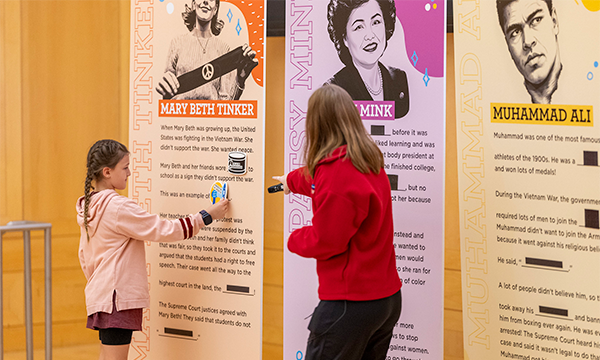
Stories of We the People Show
This program tells the stories of seven extraordinary people from American history, exploring how they were able to use their First Amendment rights to fight for change and expand the meaning of “We, the People.”
Students will get the chance to join in the storytelling as they participate in a hands-on matching game. Faces, famous quotes, and interesting facts about each individual are revealed as the game is played.
- Timing and Format: 30-minute, assembly-style program
- Audience: Elementary school students
- $4 per person in addition to admission
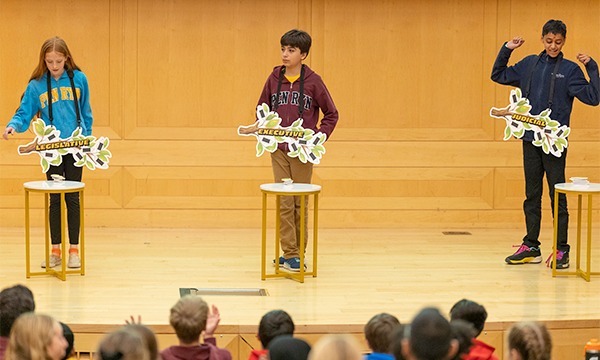
Battle of the Branches Game Show
Come on down! Students take on the role of contestants, answering questions and completing tasks during this high-energy constitutional game show as they dive into key topics like federalism, the separation of powers, checks and balances, and the role of each branch of the government.
- Timing and Format: 45-minute, assembly-style program
- Audience: Middle school students
- $4 per person in addition to admission
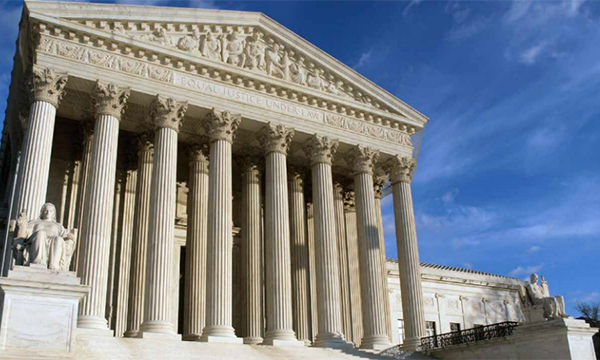
SCOTUS and Schools Case Studies
The daily Pledge of Allegiance, the student newspaper, even cheerleader tryouts—all these familiar aspects of American student life have one big thing in common: They have been the subject of Supreme Court decisions. In this program, an NCC educator walks students through case studies of some of the biggest Court cases from American history that have directly centered on the classroom. We’ll explore the facts of the cases, discuss the arguments on each side, and then students are asked to “think like a justice” as they vote on how they would have decided each case.
- Timing and Format: 45-minute, assembly-style program
- Audience: Upper middle and high school students
- $4 per person in addition to admission
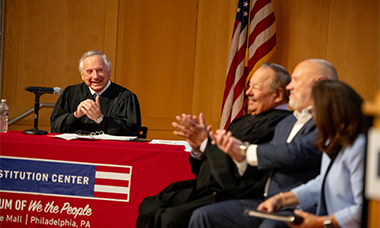
Judge Chats
All rise! Students learn about the Constitution with someone who thinks about the Constitution for a living—a federal judge! The program will explore the history of the judicial branch, the role it plays in government today, and some famous (and not so famous) cases from American history. The judge will also speak about what drew them to a career in law, the education and training that was required, what a typical day might be like, and what they think makes their job so interesting. They will also answer students’ questions.
- Availability: Wednesdays and Thursdays at 11 a.m. and 1 p.m.
- Timing and Format: 45 minute, Q&A-style program
- Audience: Great for 5th Grade and above
- Free with admission
- Advanced registration required
Special Programs for Spring 2026: Constitutional Career Days
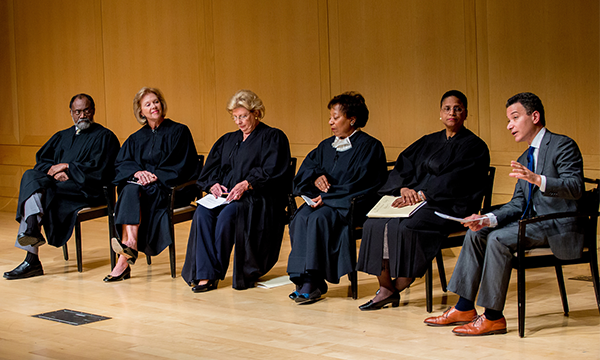 Students have the opportunity to meet professionals such as judges, attorneys, professors, park rangers, and other individuals who get to work with the Constitution every day. These experts speak about what drew them to their respective careers, what kinds of education or training was required, what a typical day might be like, and what they think makes their job so interesting. The conversation is led by museum educators, who will also speak to their own career in the Constitution: museum education!
Students have the opportunity to meet professionals such as judges, attorneys, professors, park rangers, and other individuals who get to work with the Constitution every day. These experts speak about what drew them to their respective careers, what kinds of education or training was required, what a typical day might be like, and what they think makes their job so interesting. The conversation is led by museum educators, who will also speak to their own career in the Constitution: museum education!
- Cost: Free with admission
- Time and Format: 45-minute panel discussion
- Audience: Upper elementary, middle, and high school students
Spring 2026 Dates, all begin at 10:45 a.m.:
- Thursday, April 16
- Thursday, May 21
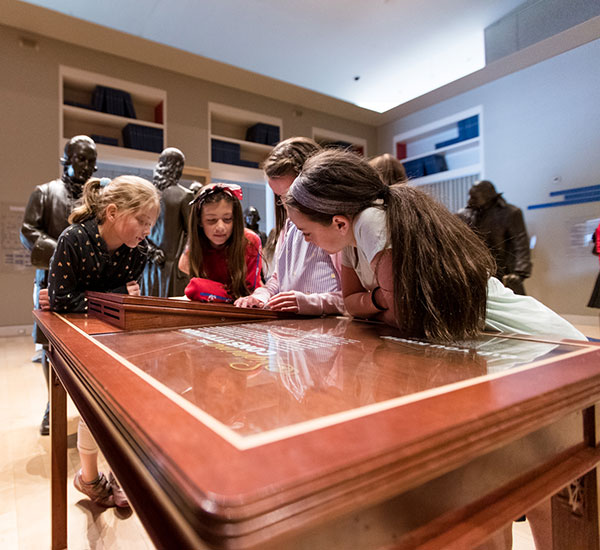
Contact Group Sales to Book
Call: 215-409-6800
Email: [email protected]
Additional Booking Information
Programs must be booked in advance, and are subject to availability. Additional costs for select programs will be added onto the group admission price. Groups will be charged for a minimum of 20 people. Scholarship funds for admission and transportation is available for groups that qualify, including Title I schools. Ask your Group Sales representative for more information.
More Information
Student and Youth Groups
Find everything you need to know about Philadelphia's premier field trip destination.
Learn MoreScholarship Opportunities
Scholarships for program and transportation are available. Find out if your classroom qualifies.
Learn MoreBooking Basics
These helpful hints and guidelines will ensure a pleasurable booking experience and a memorable group visit to the National Constitution Center.
Learn MoreProfessional Development for Educators
The National Constitution Center is focused on working with educators and scholars to empower classrooms throughout the country with the tools, knowledge, and pedagogical practice they need to understand the Constitution and its relevance to American’s lives.







